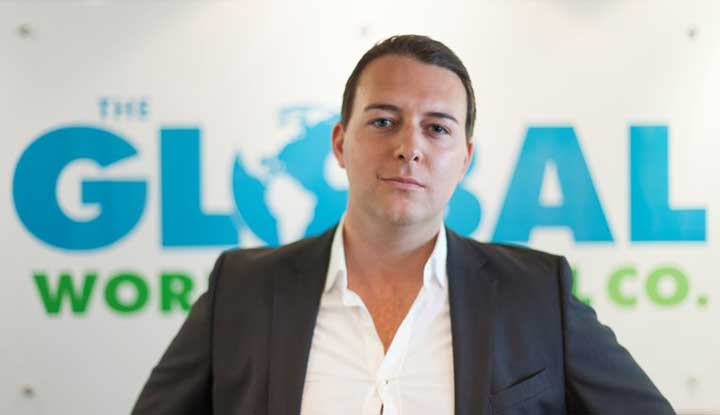While watching the 2014 FIFA World Cup, it reminded me how odd it is that our society has come to expect greatness from athletes in their late teens and early 20s, but when it comes to entrepreneurship, people under the age of 30 are often written off as being “too young” to succeed.
I can tell you from personal experience that you’re never too young to start your own business. I started my company when I was 19 and have grown my original five-man team to a company with more than 80 employees.
It doesn’t matter if you’re 18, 30, or 40; age has very little to do with your company’s chances of success. What matters more is the quality of your idea, the strength of your character and, most importantly, your willingness to accept failure as part of the process.
Fail Fast, Fail Early
As an aspiring young entrepreneur, you may not be used to experiencing failure yet. In our risk-averse society, we’ve come to misunderstand “failing” as a final destination from which one never returns. But as an entrepreneur, you’re better off failing early and often.
Failure doesn’t mean you’re a loser. There’s always another way to make something work. My company failed three times launching an outbound sales center in Canada, meaning our North American business lost money for four years straight. But we persisted and now dominate the Canadian market.
Another example of spectacular failure is Richard Branson. By the time he turned 30, Branson had lost millions in several failed business ventures, according to News.com.au, but he had plenty of time ahead of him. He learned from his mistakes, adjusted his tactics, and tried again. Today, he’s one of the most successful entrepreneurs on the planet.
Fortune Can Favor the Young
The ability to bounce back from early failures is just one of the reasons young people are in an ideal position to become entrepreneurs. Young people also have:
-
Fewer obligations.
Obligations such as a family to support, mortgages, and car payments keep us from taking risks as we get older. When you’re young, you don’t have as many responsibilities, and you can recover from financial setbacks pretty easily.
-
More mobility.
As we get older, we acquire more stuff, and we get tied down to a specific place. But when you’re young, it’s easy to pack up a few bags and move wherever your business needs you to go. Last year, I opened our London office and had no problem getting on a plane with my laptop and a suitcase and spending several months overseas.
-
An affinity for technology.
Young entrepreneurs are generally more familiar with emerging trends in technology and a lot faster at understanding how they can be applied to their business. While older entrepreneurs may look to print advertising to grow their companies, younger entrepreneurs understand how YouTube, Twitter, and Google can be used to bring customers in the door.
6 Tips for Young Entrepreneurs
Starting and succeeding in business isn’t rocket science, but there is some science to it. Here are some tips for venturing out on your own.
-
Get creative with funding.
If you don’t have any capital to get started, there are plenty of options for gathering funds. Investors are valuable because they can provide guidance and mentorship as well as funding, but you can also ask your parents and grandparents, sell your junk, or check out crowdfunding to get your business off the ground.
-
Learn how to sell.
If you can’t sell your business idea, sell your product, or sell yourself to a potential investor, you’ll find it very challenging to grow a business.
-
Don’t follow the crowd.
Instead, look at your business through the eyes of your potential customers. Ask yourself what they need, and work on delivering just that.
-
Read, listen, and learn.
As a young entrepreneur, you often don’t know what you don’t know. That can be liberating but also dangerous. Learn from the successes and failures of others. Those who ignore history are often destined to repeat it.
-
Keep your perspective.
At some point, people are going to let you down or try to prevent you from succeeding. Be prepared, and remember that it isn’t personal. It’s just business.
-
Move forward.
Avoid complacency. When one project is completed, start something new. Embrace change, and keep looking for new ways to improve.
The truth is that you can’t build a successful business without failing at something. The trick is to get through those failures as quickly as possible, learn from your mistakes, and try again. After all, you’re only young once.
Jürgen Himmelmann is the director and co-founder of The Global Work & Travel Co., a one-stop shop for travelers seeking fulfilling and meaningful long-term experiences abroad. The Global Work & Travel Co. is one of the world’s fastest-growing youth travel brands and has offices in Surfers Paradise in Queensland, Australia, Vancouver, and London. The company sells to Australian, New Zealand, European, Canadian, and U.S. markets and employs more than 80 people globally. Connect with @TheGWATCo on Twitter.
© YFS Magazine. All Rights Reserved. Copying prohibited. All material is protected by U.S. and international copyright laws. Unauthorized reproduction or distribution of this material is prohibited. Sharing of this material under Attribution-NonCommercial-NoDerivatives 4.0 International terms, listed here, is permitted.






